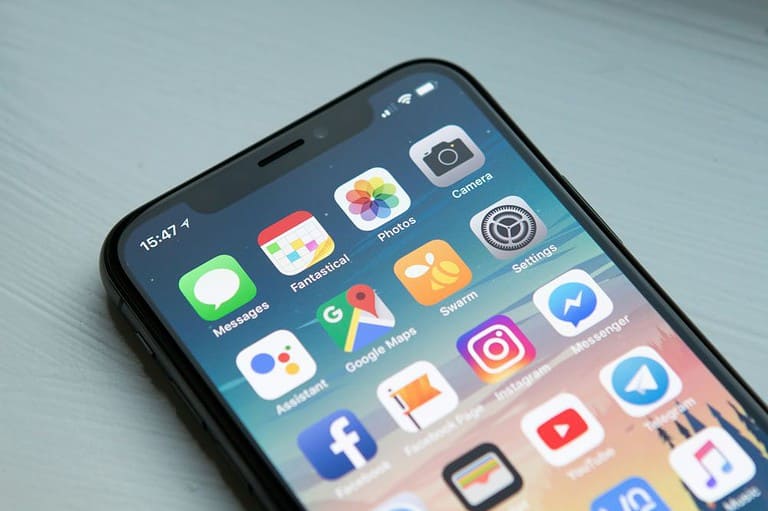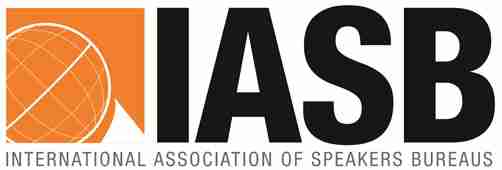- Author: Speakers Inc
- Word Count: 1044
Read the news article
The Psychology of Attendee Behavior: What Drives Engagement?
In the ever-evolving world of event planning, one question remains at the core of success: What truly drives attendee engagement? Understanding what keeps people interested, active, and returning to events is both an art and a science. By leveraging The Psychology of Attendee Behavior science principles, event organizers can create more impactful experiences that captivate audiences, foster connections, and ensure long-term loyalty.
The Psychology of Attendee Behavior
Understanding Attendee Motivation
To drive engagement, we first need to understand why people attend events. Attendees are primarily motivated by a few key psychological drivers:
- Social Connection
Humans are inherently social beings, and events provide a unique opportunity to meet like-minded individuals, network, and create meaningful relationships. The fear of missing out (FOMO) plays a crucial role in event attendance, as people want to be part of experiences that others are talking about. - Learning and Personal Growth
Many attendees seek out events to gain knowledge, acquire new skills, or stay updated on industry trends. This is particularly true for conferences, workshops, and professional development seminars. Events that clearly communicate their value proposition in terms of learning opportunities tend to attract higher engagement levels. - Entertainment and Novelty
A well-crafted event offers something new, exciting, and engaging. Attendees are drawn to experiences that break the monotony of their daily lives. Interactive sessions, gamification, and live entertainment can significantly enhance engagement. - Recognition and Status
People enjoy feeling valued and recognized. Whether through VIP access, speaking opportunities, or exclusive perks, status-driven incentives encourage greater participation and deeper involvement in events. - Behavioral Science Strategies to Boost The Psychology of Attendee Behavior
Once we understand what motivates attendees, we can apply behavioral science principles to enhance engagement. Here are some proven strategies:
1. The Power of Personalization
Attendees are more likely to engage when they feel the event is tailored to their interests. Leveraging data analytics, AI, and pre-event surveys can help organizers personalize the attendee experience.
How to Implement:
Offer personalized agendas based on attendees’ preferences.
Use AI-driven matchmaking for networking opportunities.
Send customized follow-ups post-event to maintain engagement.
2. Gamification and Reward Systems
Gamification taps into the human desire for achievement and competition. By incorporating points, badges, and leaderboards, events can motivate attendees to participate actively by The Psychology of Attendee Behavior.
How to Implement:
Introduce scavenger hunts or interactive challenges.
Reward attendees for participating in sessions, visiting booths, or networking.
Use live polling and Q&A sessions with incentives for engagement.
3. The Principle of Reciprocity
According to behavioral psychology, when people receive something of value, they feel inclined to return the favor. Providing attendees with free resources, exclusive content, or unique experiences increases the likelihood of continued engagement.
How to Implement:
Offer free downloadable content or industry reports.
Give attendees early access to premium sessions.
Provide VIP perks in exchange for social media shares or feedback.
4. Social Proof and Community Building
People tend to follow the actions of others, especially in unfamiliar situations. Highlighting testimonials, past attendee experiences, and influencer participation can create a sense of trust and encourage more engagement.
How to Implement:
Showcase attendee testimonials and success stories.
Use social media to highlight real-time attendee experiences.
Create a community space where attendees can interact before, during, and after the event.
5. The Role of Surprise and Delight
Attendees love unexpected experiences. When an event exceeds expectations with unexpected rewards, surprise guests, or immersive experiences, engagement skyrockets.
How to Implement:
Plan unexpected giveaways or exclusive meet-and-greets.
Introduce surprise entertainment or flash activities.
Offer secret perks to those who engage the most.
6. Reduce Decision Fatigue
Too many choices can overwhelm attendees, leading to disengagement. Simplifying the event experience by offering curated options helps attendees feel more in control and more likely to participate with The Psychology of Attendee Behavior.
How to Implement:
Provide clear session tracks tailored to different audience segments.
Offer guided networking options with structured interactions.
Minimize complex registration and participation processes.
7. Encourage Small Commitments First
Behavioral research suggests that once people make a small commitment, they are more likely to stay engaged and follow through with larger commitments.
How to Implement:
Use pre-event micro-engagements (e.g., simple polls or RSVP confirmations).
Encourage attendees to participate in one session before committing to a full-day event.
Offer teaser content or free previews to spark interest.
Measuring and Adapting Engagement Strategies
To continuously improve attendee engagement, it’s essential to track key metrics and adapt based on attendee feedback.
Key Metrics to Measure:
Session Attendance Rates: Track which sessions draw the most interest.
Engagement Levels: Monitor participation in Q&A sessions, polls, and networking activities.
Social Media Mentions: Analyze attendee-generated content and online buzz.
Post-Event Feedback: Use surveys to understand what resonated most with attendees.
Continuous Improvement:
Leverage AI-driven analytics to detect patterns in attendee behavior.
Use A/B testing to determine which engagement tactics work best.
Regularly refresh event formats to prevent stagnation.
Top Behavior Speakers to Consider for Your Event
- Mel Robbins – A renowned speaker on motivation and behavior change, Mel Robbins is best known for her “5 Second Rule,” a simple yet powerful technique for overcoming hesitation and taking action.
- Shane Snow – A journalist and entrepreneur, Shane Snow explores the science of teamwork, innovation, and what makes people tick in high-performing groups.
- Rachel Sheerin – An expert in workplace behavior and burnout prevention, Rachel Sheerin helps organizations foster enthusiasm, engagement, and meaningful connections.
- Dr. Abbie Maroño – A behavioral scientist specializing in nonverbal communication and deception detection, Dr. Maroño provides insights into trust-building and authentic engagement.
- William Higham – A consumer futurist, William Higham predicts trends in behavior and engagement, helping brands and event organizers anticipate and meet attendees’ evolving expectations.
Conclusion
Understanding the psychology of attendee behavior is crucial for crafting events that captivate and engage audiences. By tapping into behavioral science, event planners can design experiences that align with attendees’ motivations, foster deeper participation, and drive long-term loyalty. From personalization and gamification to social proof and reciprocity, the right strategies can transform an average event into an unforgettable experience through The Psychology of Attendee Behavior.
As the event industry continues to evolve, those who embrace the science of engagement will be best positioned to create meaningful, memorable, and impactful gatherings.
Contact us at Speakers Inc and follow us on Twitter
Speaker Listing
No results available
Further articles you may enjoy:
- (14)
The Role of a Virtual Emcee, a guide is the one steering you on the right course – a firm hand halting you from treading where you shouldn’t, and it’s the instructions researched and tested to provide you with the best results too. Therefore, a guide is also intrinsically necessary for the optimization of an […]
- January 3, 2023
- (9)
In today’s rapidly evolving business landscape, artificial intelligence (AI) has become an indispensable tool for corporate transformation, particularly in enhancing sales and productivity. By automating routine tasks, personalizing customer experiences, and deriving actionable insights from vast datasets, AI provides companies with a competitive edge, fostering growth and improving operational efficiency. Boosting Sales through AIAI empowers […]
- October 25, 2024
- (41)
In an era where customer expectations are higher than ever, many Retail Businesses Are Failing at Customer Service and experience. Despite technological advancements and increased competition, the quality of customer interactions has seen a noticeable decline. The Failing at Customer Service Quality Recent studies highlight a troubling trend: customer satisfaction is at a decade low. […]
- April 22, 2025
- (20)
The Power of Motivational Sales Speakers: Keynote Themes, Takeaways, and Audience Impact In the fast-paced world of business, sales professionals face constant challenges that demand not only skill but also a resilient mindset. Motivational sales speakers play a critical role in empowering these professionals, providing the inspiration, tools, and strategies needed to achieve success. Whether […]
- August 14, 2024
- (14)
Make Your Email Subject and Content Fun, Compelling, Curious, and Commanding To Get Quicker Responses that Pay Off! By Joy Baldridge Have you ever been surprised or frustrated by how few return emails you receive when reaching out to your prospects and customers/clients? Responsiveness is at an all-time low. Everyone is overwhelmed and inundated with emails. […]
- December 19, 2022
- (19)
Captains Log 13th -17th June 29 05’474 N 128 01’447W Pacific Ocean Milestones-The waterline/ Hatches & rouge waves/MOB take 2 -Injuries /Slow is pro / It’s all shifting / Maslow’s hierarchy of Needs / Story of the clever turd! / Shifting spaces / Into the light.. Breakthrough/ Flicker on! / Shifting goalposts/ Threading the needle/ […]
- December 21, 2022
- (9)
Unlocking Event Success: The Power of Speakers Inc Mobile App for Keynote Speakers, Event Emcees, and Entertainers Organizing a successful event requires meticulous planning, and one crucial aspect is securing the right keynote speakers, event emcees, and entertainers who can captivate the audience. In the digital age, where efficiency is key, mobile apps have emerged […]
- January 29, 2024
- (14)
The Essence of Authentic Leadership: Embracing Genuine Influence with Erin Hatzikostas In an era where leadership is often synonymous with corporate jargon and pretense, the concept of authentic leadership emerges as a beacon of hope and integrity. Authentic leadership transcends traditional leadership paradigms by emphasizing transparency, genuine relationships, and a commitment to personal and organizational […]
- July 29, 2024
No results available
















